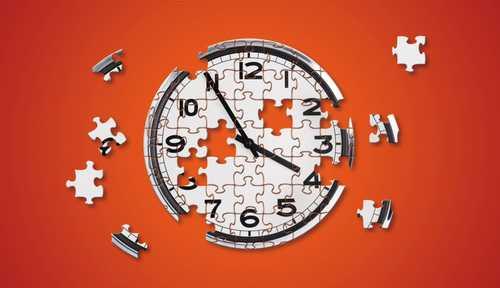Here's why you procrastinate, and 10 tactics that will help you stop
Curated from: alifeofproductivity.com
Ideas, facts & insights covering these topics:
4 ideas
·1.77K reads
Explore the World's Best Ideas
Join today and uncover 100+ curated journeys from 50+ topics. Unlock access to our mobile app with extensive features.
Pychyl, in his research and during our interview, identified a number of task characteristics that make you more likely to procrastinate. Tasks that are aversive tend to:
- Be boring
- Be frustrating
- Be difficult
- Lack personal meaning and intrinsic rewards
- Be ambiguous (you don't know how to do it)
The more negative emotions you show toward a certain task, the more likely you are to procrastinate, and according to Pychyl, "any of these [characteristics] can do it".
520
446 reads
To push back against these biases, recognizing them is key. Then, Tim recommends that you "list the things that you commonly say or do to justify your procrastination", and use these biases as triggers that you should respond to your behaviour differently.
One of my favorite tactics that Tim recommended is to limit how much time you spend on something . He spoke about his German colleague who limits how much time he allows academic procrastinators spend on an assignment. "He will limit the time they can work on an assignment. 'Okay, we're working today and you've got twenty minutes to work on that assignment, and you may not work any more.' And so they go: 'I've got twenty minutes. I better make the best use of it.'" And they do.
521
444 reads
People, as a rule, overestimate how much motivation they need to do something. After all, usually you just need enough motivation to get started. For example:
One of the biggest recommendations Tim had was to simply get started. "Once we start a task, it is rarely as bad as we think." In fact, once you get started on something, your "attributions of the task change", and what you think about yourself changes, too.
Tim offered up a great tip in his book : "When you find yourself thinking things like 'I'll feel more like doing this tomorrow,' 'I work better under pressure,' 'There's lots of time left,' I can do this in a few hours tonight', let that be a flag or signal or stimulus to indicate that you are about to needlessly delay the task, and let it also be the stimulus to just get started."
521
439 reads
In his book, Tim recommends that you make a list of the tasks you're procrastinating on, and then "[n]ext to each of these tasks or goals, note how your procrastination has affected you in terms of things such as your happiness, stress, health, finances, relationships, and so on. You may even want to discuss this with a confidante or a significant other in your life who knows you well." At the end of the day, "you may be surprised by what they may have to say about the costs of procrastination in your life."
519
443 reads
IDEAS CURATED BY
Q Quentin's ideas are part of this journey:
Learn more about habits with this collection
Conducting market research
Analyzing data to make informed decisions
Developing a product roadmap
Related collections
Similar ideas
12 ideas
Here's why you procrastinate & tactics that will help you stop
alifeofproductivity.com
3 ideas
Read & Learn
20x Faster
without
deepstash
with
deepstash
with
deepstash
Personalized microlearning
—
100+ Learning Journeys
—
Access to 200,000+ ideas
—
Access to the mobile app
—
Unlimited idea saving
—
—
Unlimited history
—
—
Unlimited listening to ideas
—
—
Downloading & offline access
—
—
Supercharge your mind with one idea per day
Enter your email and spend 1 minute every day to learn something new.
I agree to receive email updates
